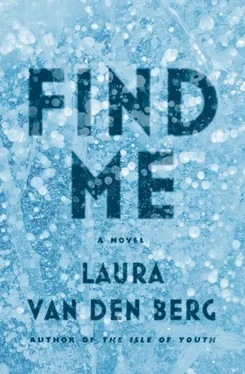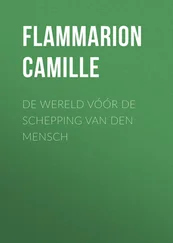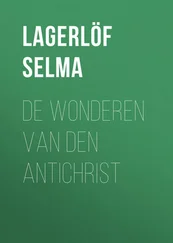One day the son moved back home, into the second bedroom upstairs. Next to me. Something had happened with his job, something that couldn’t be helped by his advanced degree, but no one wanted to talk about it. I would press my ear against the wall and listen to him moving around in his room. I learned that he liked songs sung in Spanish. He never had anyone over. His cell phone never rang. He watched action movies late into the night; I could hear the explosions of gunfire through the wall. In the mornings, when I was getting ready for school, I would find him in the kitchen, eating a bowl of sugar cereal without any milk. He wore square glasses, his eyes brown dots behind the lenses, and his teeth seemed crowded in his mouth. He wore polo shirts in different shades of blue. “The colors of the sea,” he would say, plucking at the collar of his shirt. At first, it was okay having him around.
We were alone one afternoon and he invited me into his room, which had been his since childhood and was preserved in his absence. I’d never been in there before. Posters of cities with cathedrals overlooking cobblestone squares were taped to the walls. Towers of books with linen spines filled the corners. He had a little contraption set up: two white electrodes hanging from thin wires, the wires connected to a laptop. He told me to sit on his bed. He put a white circle on each of my temples. Neurofeedback, he said this was called.
“Do you know what this does?” he asked me.
I shook my head.
“It lets me read your thoughts.”
I was seven and I had all kinds of thoughts I didn’t want anyone to read.
He sat in front of his laptop and pressed a button. I felt a tiny pulse on my skull.
“What am I thinking right now?” I asked.
“You’re scared,” he said. “Don’t be scared.”
There is a period of time in Allston, the eighth year of my life, that I still cannot remember. One day I was nine years old and away from Park Vale Avenue, living on the farm in Walpole. One day I was sitting at a school desk in a renovated barn and sleeping in a cottage dorm that overlooked a green field. I can’t remember arriving there or leaving Allston. It was like waking up from, or into, a dream.
At the end of December, I turn twenty. A new decade, but of what? When our Floor Group cleans the Common Room, we keep the TV on, so we can hear about the recovery. As a result, we don’t spend much time cleaning. We stand around the TV with our sponges and spray bottles and brooms, watching. The windows are streaked with fingerprints, dust has settled along the floorboards, but the world around us is coming back to life. The president is in the White House. Hospital populations are shrinking. Garbage trucks are rumbling down streets. Snowplows are clearing roads. On TV, they make a noise that sounds like thunder.
We watch blue salt scatter across sidewalks. We watch a city bus dock by a stop; we watch the doors snap open. We watch a subway car bolt through a tunnel. We watch people line up outside a grocery. This is somewhere in Michigan. The grocery is surrounded by a lake of milky ice. In the line, there is an energy; I can feel it coming through the screen. It connects one person to another, like they are all holding a long rope.
These people belong to the same category now. They are the survivors.
The divide between us patients and the outside world has never seemed greater. Watching the recovery is like watching a new TV show play out: the narratives of the characters evolve, branch in new directions, while ours stays the same.
“Outside! Outside!” a patient shouts in the hallway.
During an Internet Session, I look at photos of abandoned places. There’s an empty power plant in Belgium, where the walls spiral up like a giant snail shell, slick with neon algae. A hotel in Colombia that sits high on a mountain, overlooking the Bogotá River, a lush garden growing on the roof. An underwater city in Shicheng. Michigan Central Station in Detroit, where rivers of rubble and silt flood the hallways. Holy Land USA in Waterbury, Connecticut, where tiny buildings are packed onto ridges, the eyelike windows looking out at the vines climbing walls and the crosses crumbling into the earth.
These places were not created by the sickness, just as the gap in my own memory was not created by the sickness. This was all done long before.
“Time is passing,” N5 says on the morning of my birthday, sucking blood into a syringe. “The world is moving on.”
“ We aren’t moving on,” I say.
“That’s right,” says Louis. “We’re getting left behind.”
After she’s gone, Louis stands on his bed and starts jumping up and down. The mattress bobs. The frame shudders. “Happy birthday to you,” he sings.
I often wonder what Louis was like before the sickness, if he was a good husband, if he was faithful to his wife.
I climb up and jump beside him. I can almost touch the ceiling. I think the bed is going to come apart. For a few glorious seconds, I feel our togetherness return and believe we are going to be launched far away from here.
At breakfast, a cupcake topped with a white curl of icing is waiting for me in the Dining Hall, sitting on one of the long tables. All the Floor Groups have crowded around the table, along with Dr. Bek and the nurses. They applaud when Louis and I walk in. I play my role. I give a little wave. N5 hands me a plastic fork.
“Go ahead,” she says.
I take a bite. The center is still frozen. The icing is cold and sweet and hurts my teeth. The twins come over and present me with a toilet paper lei. I bend down and let them loop it around my neck. Dr. Bek stands beside me, a gloved hand on the point of my shoulder. I see a flush in the high ridges of his cheekbones.
I don’t tell anyone that my birthday is a guess made by a doctor at Brigham. The month is right, but the date could be a fiction.
Dr. Bek fails to mention the last birthday the Hospital celebrated, back in October, was for a man who became symptomatic a week later and died. Instead he leads the patients in a round of “Happy Birthday.” The nurses join in, the lyrics a rumble inside their suits, followed by the patients. I’m stuck inside the tornado of sound, trying to look happy to be alive. As the room swells with our voices, I think about how, if I’m carrying the sickness inside me, I will one day forget Dr. Bek and all these singing people. I will forget the meaning of the words “birthday” and “patient.” I will forget how to use a fork. I take another bite of the cupcake and wait for the party to end.
* * *
I spend the rest of the day alone in the Common Room, passing time by looking out the window. There are no pilgrims, too cold now for even the most devoted. The plains gleam with ice. I know the world around us is changing, but the view from the window is the same.
On my last birthday, I worked a double at the Stop & Shop and got a free M&M’s cookie from the bakery and stole an extra bottle of Robitussin. I drank half of it in the bathroom, which seemed like an okay thing to do because it was my birthday, and I spent the rest of my shift in Produce, standing beside a pyramid of lemons and feeling the rapid twitch of my heart.
During my first week in the Hospital, my blood pressure was jumpy and I sweated rivers under my scrubs. I kept thinking about the time Ms. Neuman found out about me stealing from a neighborhood kid, the time I took a girl’s red barrettes and lied about it and her mother called. “You can be any kind of person you want,” Ms. Neuman told me in her kitchen, kneeling in front of me, an unlit Virginia Slims behind her ear. “Why would you choose to be this?”
Which was exactly what I thought on my last birthday, standing in Produce, my skin dewy from the vegetable misters: Why did I choose to be this?
Читать дальше












